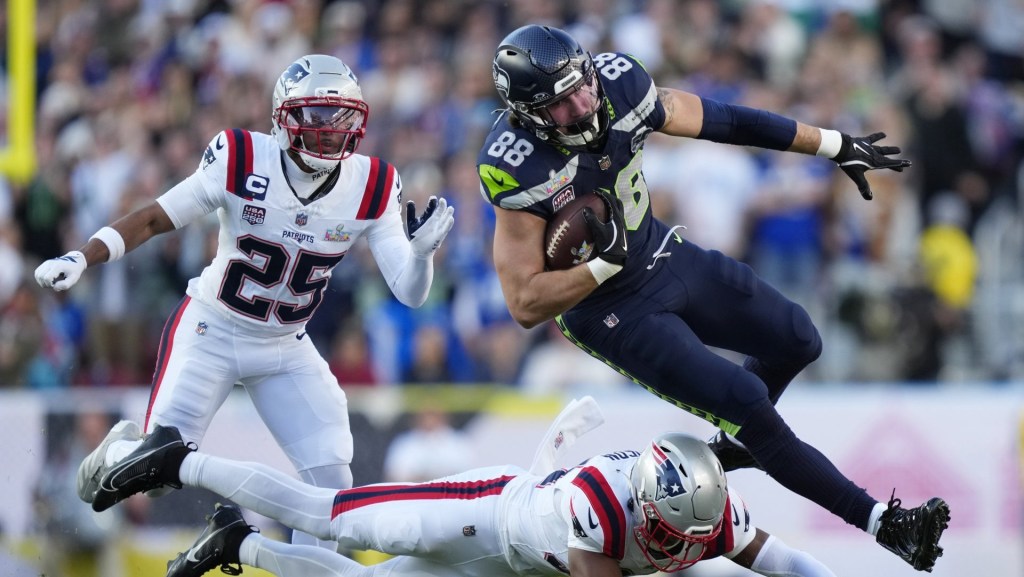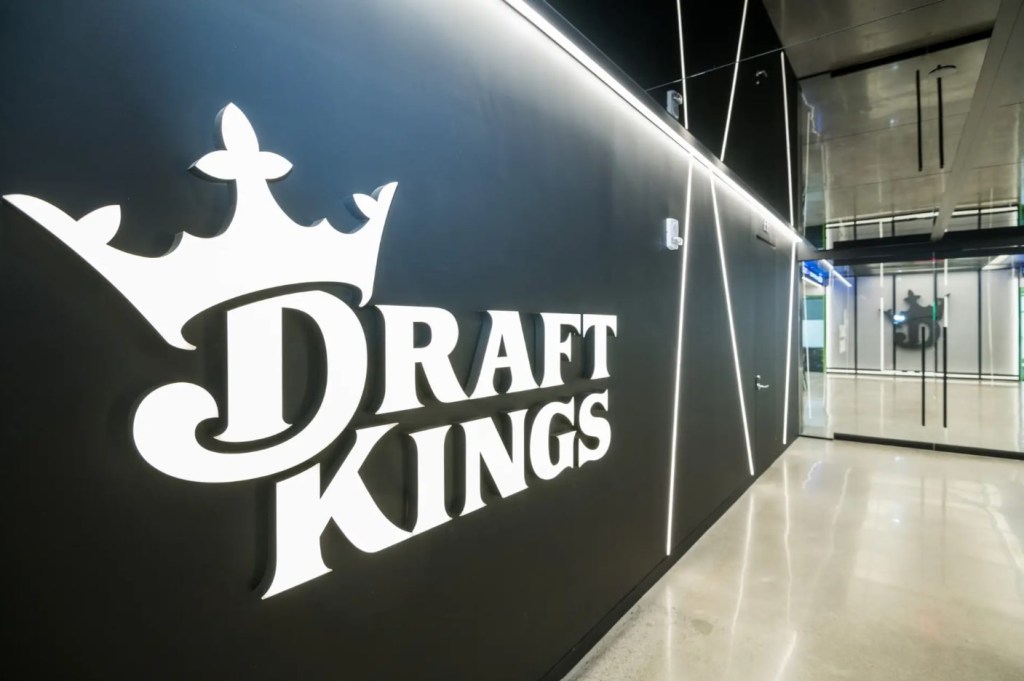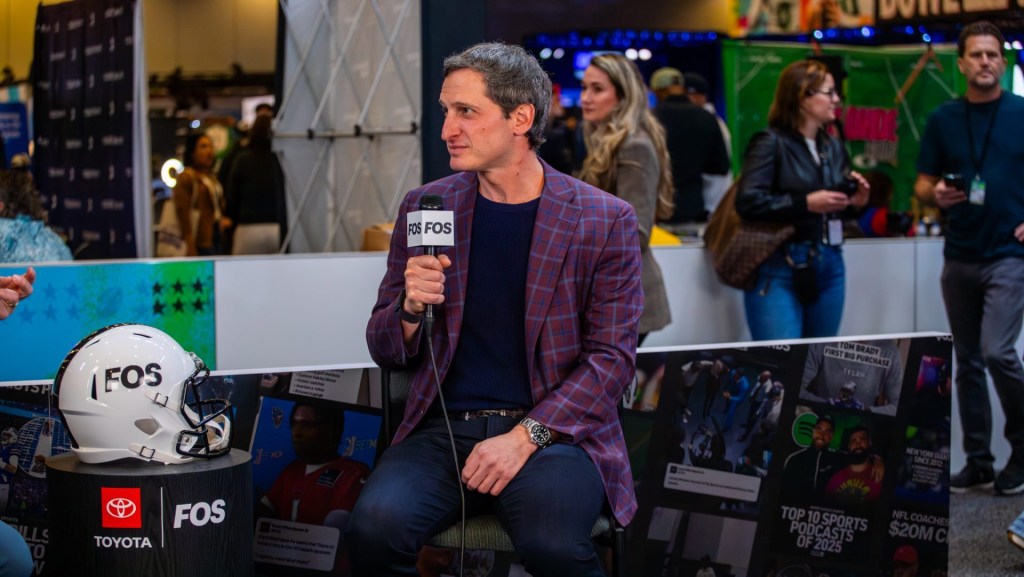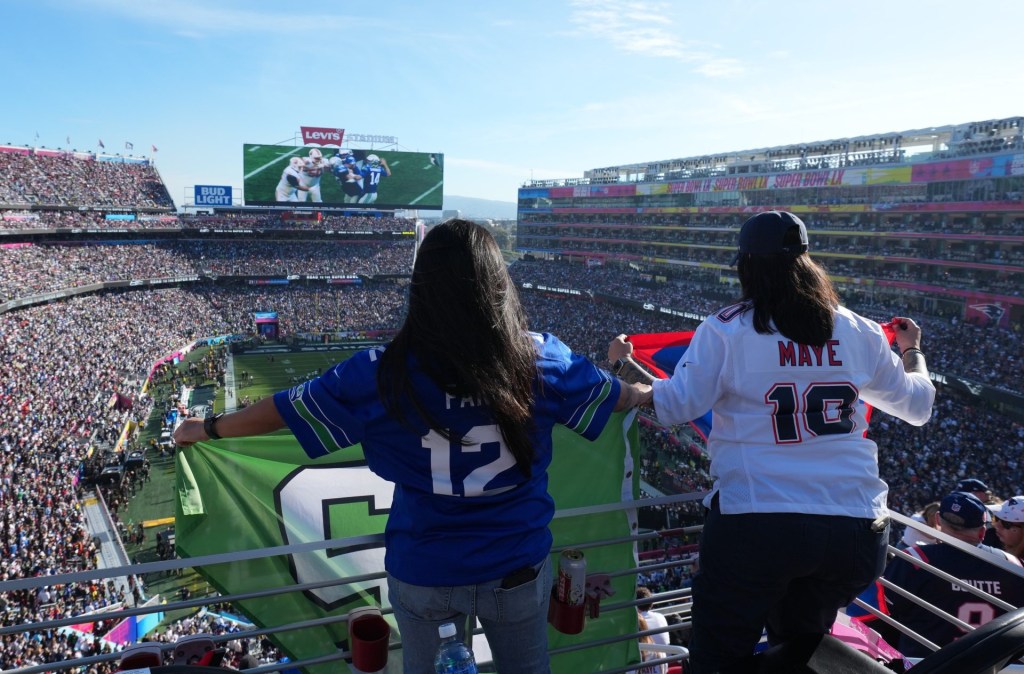On May 14, 2018, the U.S. Supreme Court struck down the Professional and Amateur Sports Protection Act of 1992 — the federal law prohibiting sports betting.
Five years later, 33 states plus Washington, D.C., have legalized sports betting in some form, with four more joining with pending legislation.
It’s led to $220 billion in legal sports wagers placed since 2018 — leading to over $3 billion in tax revenue for the legal states, per the American Gaming Association.
“It’s not that people started betting when the court invalidated PASPA,” says AGA senior vice president Casey Clark. “It’s just that more Americans had access to legal, regulated sportsbooks.”
On the fifth anniversary of the fall of PASPA, Front Office Sports tapped industry experts to answer the most pressing questions facing sports betting.
The world of betting advertising
Whether it’s at a venue, on television, or online, sportsbook operators are blitzing the sports world with ads.
Because the market is so young — and renewed every time a new state legalizes — the books are constantly in a mad dash to sign up new users before their competitors.
It’s led to some unsavory advertising practices, including promises of “free” bets, hilariously easy ones (“If Stephen Curry makes one basket, you win!”), and other signup bonuses.
Once the new users are in, the books push parlays — a noted loss-leader for consumers — as well as other risky bets, some tied to celebrity endorsement.
The industry is taking steps to publicize itself more responsibly amid abounding concerns.
“The tiny print with a lot of phone numbers at the bottom is problematic,” says Clark, who says the organization is working on creating one easy phone number for betting addicts to call and making it more prominent in ads.
In March, AGA updated its Responsible Marketing Code to prohibit “risk free” language in ads. In general, the code is very similar to that of the Coalition for Responsible Sports Betting advertising, a team-up established last month between the major U.S. sports leagues and some broadcasters.
Several states have made their own moves to head off troubling advertising — including Ohio, which fined three sportsbooks $150,000 for violations in January.
“Broadly speaking, in fairness to the operators, I have heard more advertisements around responsible gaming than I’ve ever heard before,” Andrew Bimson, Sportradar COO and president of North America, says. “I think they’re doing a much better job now than they did 12 months ago, than three years ago.”
Sports betting and colleges
Another update to AGA’s Code included language to “enhance college-aged protections.”
“It’s a really high bar for anyone to get and retain a gaming license, and we want to make sure that as this market evolves and matures, everyone is held accountable to a certain standard of operation,” says Clark. “That includes only marketing and advertising toward people who are 21 and over.”
As a result, sportsbook-university partnerships were quickly severed. The University of Colorado ended its relationship with PointsBet just two months after tamping it down due to heavy backlash.
It’s an important distinction to make as sports betting becomes more popular across the college landscape — some women’s March Madness games had handles nearly comparable to NFL games.
However, the relationship between sportsbooks and universities clearly still has a long way to go. Iowa’s state gambling commission recently launched an investigation into the Iowa and Iowa State baseball teams for “potential criminal conduct.”
That said, the nature of those charges could have more to do with negligence than anything nefarious — which only increases the need for sports betting education on college campuses that Clark says the AGA is attempting to rectify.
Integrity in sports betting
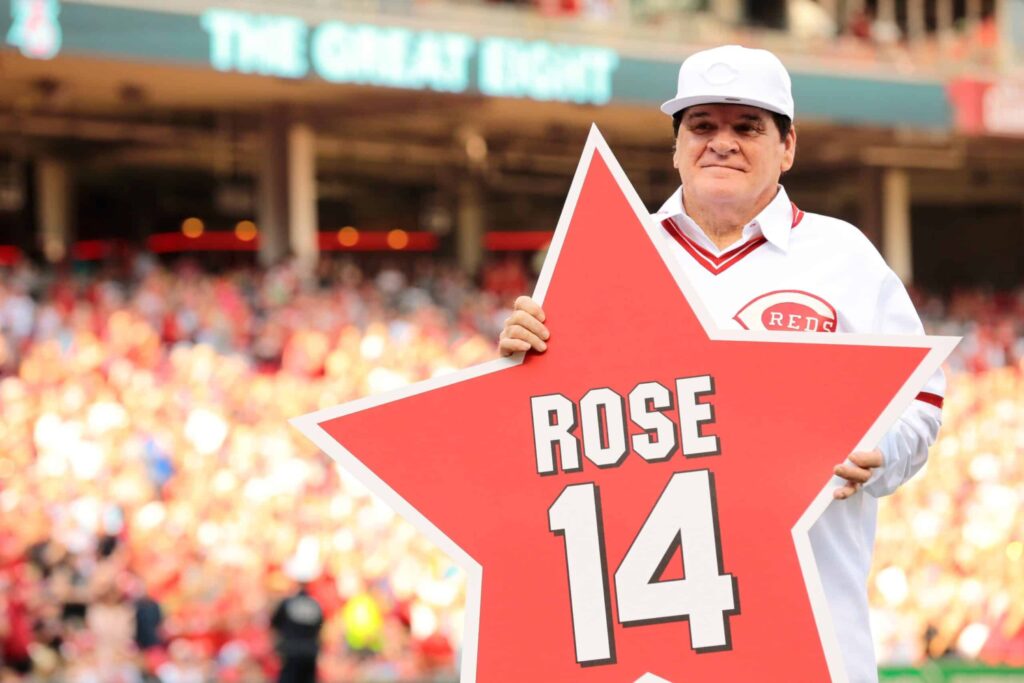
There were, however, much more nefarious activities in college baseball related to sports betting uncovered in early May.
Alabama baseball coach Brad Bohannon was fired amid allegations of suspicious betting activity surrounding his team that forced several states to halt wagering.
Overall, betting integrity has been in the news for all the wrong reasons lately.
In April, the NFL suspended six players in connection with violations of the league’s gambling policy — just weeks after the league reinstated Jacksonville Jaguars wide receiver Calvin Ridley from a yearlong betting suspension.
In December, two Canadian provinces paused betting on UFC due to irregular betting patterns.
It may seem dire — but the fact that we’re hearing about all of these relatively minor scandals is actually a sign that the legal betting system is working.
“If there’s no regulated sports betting, these guys don’t get caught,” says NESN betting analyst Sam Panayotovich. “If [Bohannon’s] doing this through an illegal bookie or whatever, and he’s playing it through the black market, then he does this for five, 10 years, maybe even longer. The fact that you have regulated sports betting and all of these states have individual commissions allows them to catch anything shady.”
Indeed, many of sports greatest betting scandals occurred before the fall of PASPA — and went on for extended periods.
Former NBA referee Tim Donaghy was influencing games for betting purposes as early as 2003 and wasn’t caught until 2007. Pete Rose was betting on MLB games starting in 1987 while managing the Cincinnati Reds and wasn’t caught until 1989.
“You can go back every single decade and find something far more egregious than what has happened in the last 36 months,” Bimson says. “And because it wasn’t regulated then, it was probably pushed aside or covered up because it didn’t have that type of oversight.”
When will the rest of the states legalize?
With each new report, the sports betting industry raises its own bar — Q4 2022 set quarterly records for handle ($29.8B) and sportsbook revenue ($2.6B), per the AGA.
But that’ll be nothing compared to the windfall that comes from the inevitable legalization of sports betting in California, Texas, and Florida.
“We still have potentially three of the biggest dominoes in the country that aren’t even playing ball yet,” says Panayotovich. “And that’s going to just explode the handle numbers.”
Those three states account for three of the four largest GDPs in the country.
- California: $3.6 trillion
- Texas: $2.4 trillion
- Florida: $1.4 trillion
New York ($2.1 trillion) took online sports betting live in January 2022. That year, nationwide sports betting revenue soared from $4.3 billion to $7.5 billion — a 61.1% year-over-year increase.
California forcefully struck down sports betting legislation in November in large part because tribal communities have a large influence on gaming in the state. Californians “respect their sovereignty,” believes Bimson — with the caveats that “it’s too big a market to ignore” and that legalization could come most likely in 2026.
But in a sense, any delay in clearing sports betting could be a relief to sportsbook operators who are still learning five years in.
“I think the operators now are kind of gathering their breath,” Bimson says. “Because the market opened up, and it opened up in a hurry.”
Where does this all leave Las Vegas?
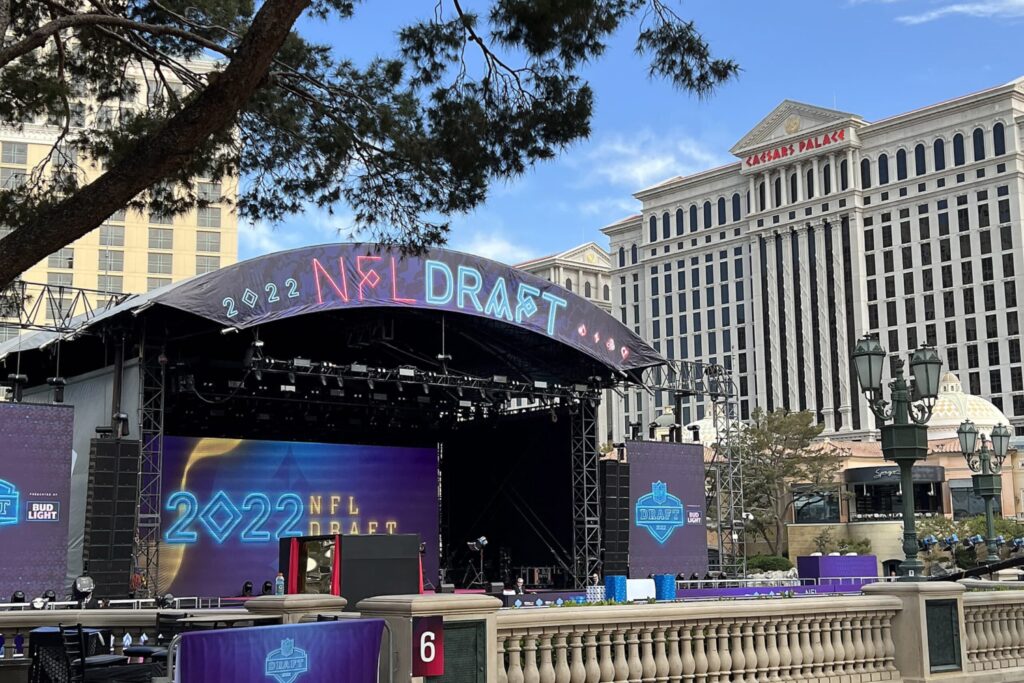
With access to sports betting easier than ever before, there’s a train of thought that the shining towers of Las Vegas casinos could lose their luster.
On the contrary, Vegas has never been more vibrant.
“The experience of betting on your phone, on your couch is a lot different than going to Las Vegas and being at the sportsbooks,” says Clark. “I think it’s about different entertainment options for different reasons and for different people who want different things.”
Aside from the sports betting experience, normalizing the practice has helped bring professional sports franchises to Las Vegas.
Since 2018, the NHL’s Golden Knights, WNBA’s Aces, and NFL’s Raiders have all taken up residency in Sin City. The Oakland A’s seem destined to move there, too — and it’s only a matter of time before an NBA franchise arrives. (LeBron wants to own one.)
Additionally, Formula 1 is staging its first-ever Grand Prix in the city this November, while the crown jewel of American sports, the Super Bowl, will be hosted at Allegiant Stadium in 2024.
“Can you imagine saying five years ago that [by now], you would have three professional teams there, plus the pinnacle of motorsports globally making a stop there?” Bimson says. “You would’ve been laughed out of the room.”
“I think if anything, the legalization of sports betting has allowed us to realize that sports can work in Nevada.” Panayotovich says. “Maybe the handle is down, relatively speaking, but Nevada as an entity has never been more sexy or thriving, because now professional sports is exploding in Nevada — and that’s got to be worth a lot more than losing a little bit of money on a random Saturday or Sunday.”
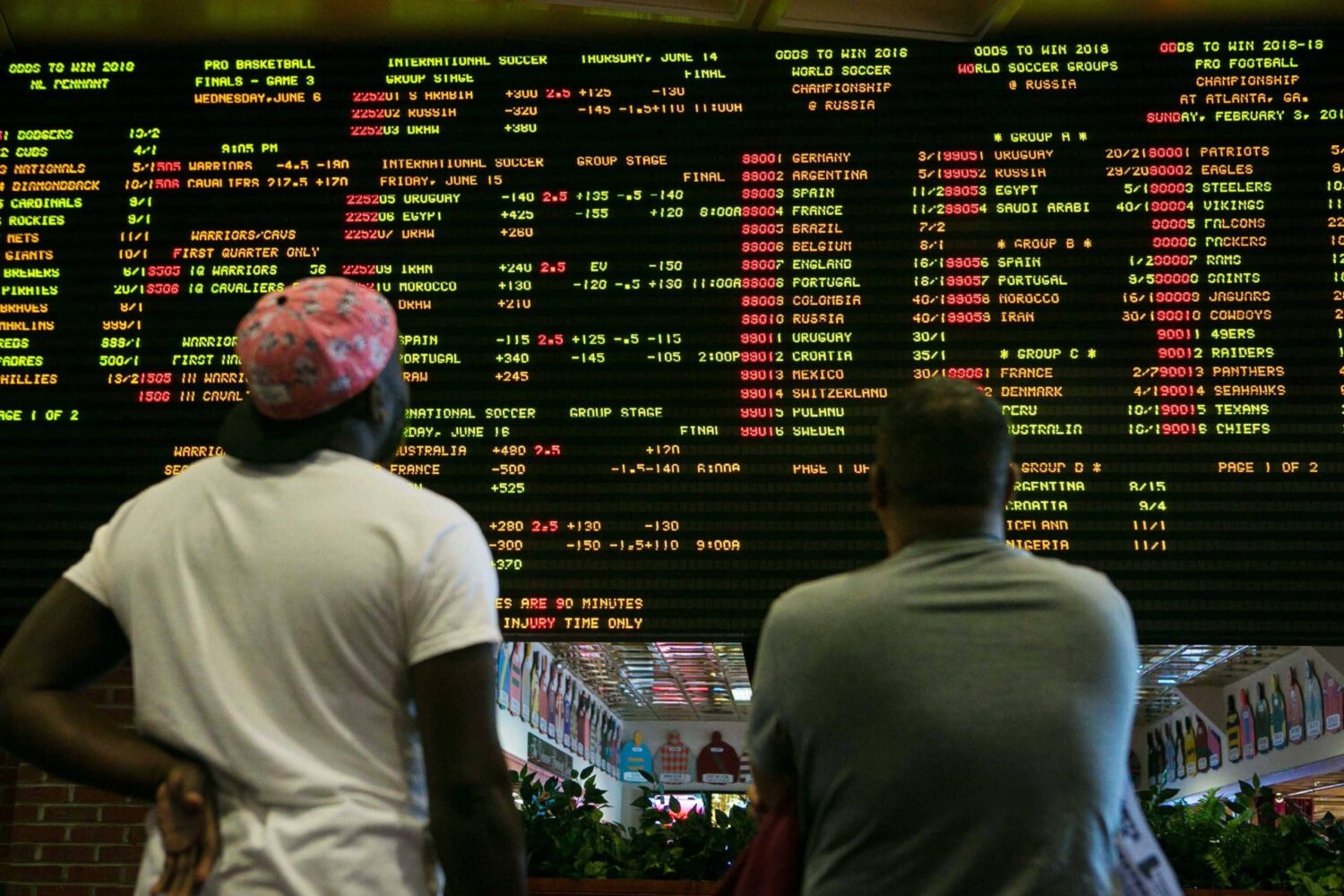
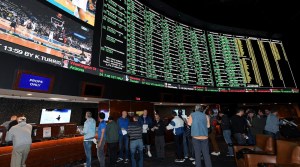


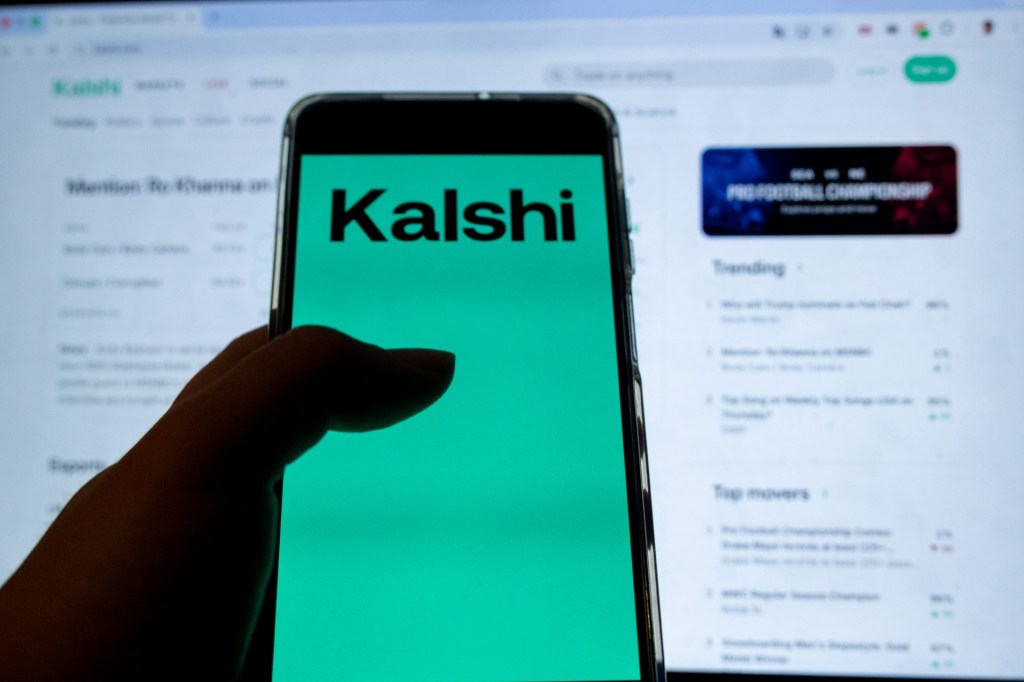


![ESPN Bet broadcasts inside the PGA Tour Studios building in Ponte Vedra Beach, Florida, on March 14, 2025. [Clayton Freeman/Florida Times-Union]](https://frontofficesports.com/wp-content/uploads/2026/02/USATSI_25668497_168416386_lowres-1-scaled.jpg?quality=100&w=1024)
![[Subscription Customers Only] Jul 13, 2025; East Rutherford, New Jersey, USA; Chelsea FC midfielder Cole Palmer (10) celebrates winning the final of the 2025 FIFA Club World Cup at MetLife Stadium](https://frontofficesports.com/wp-content/uploads/2026/02/USATSI_26636703-scaled-e1770932227605.jpg?quality=100&w=1024)



